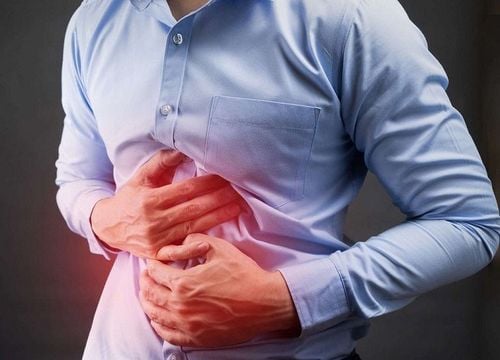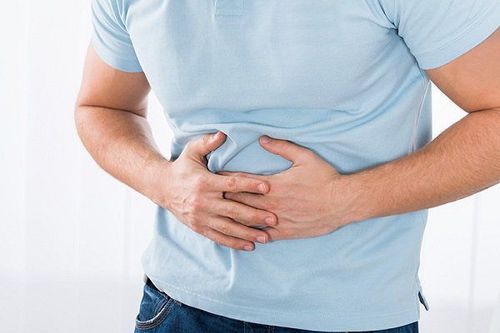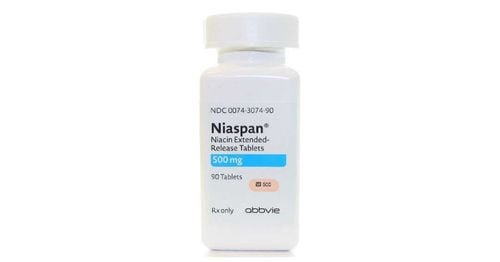This is an automatically translated article.
Eating too much sugar can cause many bad effects on your health. It has been shown to contribute to obesity, type 2 diabetes, heart disease, cancer and tooth decay. While sugar is found naturally in foods like fruits and vegetables, it has little effect on your blood sugar and is considered very healthy. This article lists simple ways to reduce sugar in your diet.1. Sugar and your diet
Fruits and vegetables also contain a variety of vitamins and minerals that are good for your health. The danger is from added sugars in processed foods. By today's estimates, the average American now consumes about 17 teaspoons (68 grams) of added sugars per day. More than the daily limit that some experts recommend is 6 teaspoons (25 grams) for women and 9 teaspoons (37 grams) for men.If your goal is to reduce the amount of sugar in your diet, an obvious place to start is to limit your consumption of regular soda, candy, and other high-sugar items. But chances are you're still consuming more sugar than you realize.
To reduce the amount of sugar in your diet, an obvious place to start is to limit your regular soda consumption, as well as add a teaspoon of sugar to your morning cereal. But what if you're making strides toward cutting back on high-sugar treats? Chances are you're still consuming more sugar than you realize from certain foods on a daily basis.
2. 14 ways to reduce the amount of sugar in your diet
2.1. Cut back on sugary drinks Some popular drinks contain large amounts of added sugar. Carbonated soft drinks, energy drinks, sports drinks, and fruit drinks contribute to 44% of the added sugars in the American diet. Drinks that are always considered "healthy," like smoothies and fruit juices, can still contain large amounts of sugar. Example: About 400 ml of 100% apple juice contains more than 12 teaspoons of sugar. Our bodies receive sugar from drinks differently than from other foods. Drinks don't make you feel full, so people who consume a lot of calories from drinks won't eat less to reduce sugarAvoid sugary drinks, such as soft drinks, energy drinks and some foods Drinking fruit will significantly reduce the amount of sugar in your diet and may help you lose weight.
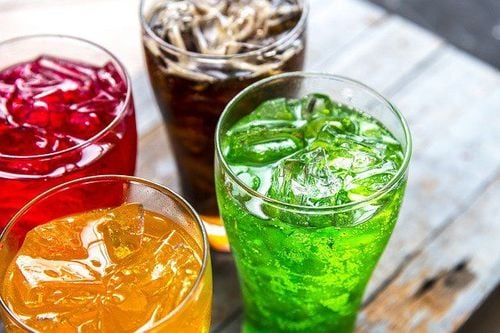
Giảm lượng đường bằng cách cắt giảm đồ uống có đường như nước ngọt, nước tăng lực...
Swapping sugary desserts for fresh or baked fruit not only reduces your sugar intake, but also increases the fiber, vitamins, minerals and antioxidants in your daily diet.
Desserts such as ice cream, cakes and cookies contain a lot of sugar and provide little nutrition. Alternatively, you can switch to fresh or baked fruit to reduce the amount of sugar and still increase the amount of fiber, vitamins and minerals.
2.3. Avoid high-sugar sauces Sauces like ketchup, barbecue sauce, and sweet chili sauce are common in most kitchens. However, most people are unaware of their sugar content. One tablespoon (15 grams) of ketchup can contain 1 teaspoon of sugar (4 grams). Although some have no added sugar, always read product labels to make sure you choose foods with the lowest sugar content
2.4. Eat full-fat foods Many people shy away from high-fat foods for fear of gaining weight and choose other alternatives. The disturbing truth, however, is that they often contain more sugar and sometimes more calories than high-fat foods. A 113-gram serving of low-fat vanilla yogurt contains 4 teaspoons (16 grams) of sugar and 96 calories. But that same amount of full-fat yogurt contains just over a teaspoon (5 grams) of natural lactose and just 69 calories.
Eating a lot of sugar has also been shown to cause weight gain, which negates the reason we choose low-fat foods in the first place. When you're trying to cut back on your sugar intake, you're better off opting for the full-fat version instead.
2.5. Eat whole foods Whole foods are whole foods that have not been processed or refined. They are also free of additives and other artificial substances. On the other side are processed foods. These are processed foods that contain salt, sugar, and fat, but also substances that are not commonly used in home cooking. These substances can be artificial flavors, colors, emulsifiers or other additives. Examples of processed foods are soft drinks, desserts, cereals, pizza, and pies.
Ultra-processed foods are different from standard processed foods, often with only minimal added ingredients, all of which you can find in a standard kitchen. Examples of standard processed foods are plain bread and cheese.
90% of added sugars in the average American's diet come from quickly processed foods, while only 8.7% come from foods prepared from scratch at home using whole foods whole grain.
Seemingly healthy options like canned pasta sauce can also contain alarming amounts of sugar. One serving (128 grams) can contain almost 3 teaspoons (11 grams) of sugar.
Try to cook foods so you can avoid adding sugar. You don't have to cook fancy meals. Simple tricks like marinating meat and fish with herbs, spices and olive oil will give you delicious results.

Cố gắng nấu nướng các loại thực phẩm để bạn có thể giảm lượng đường
If you buy canned fruits or vegetables with added sugars in them, you can get rid of them by rinsing them in water before eating.
2.7. Beware of processed snacks labeled as 'Healthy' Most people know that candy and cookies are high in sugar, so they can look for snack alternatives.” healthy". Surprisingly, snacks like granola bars, protein bars, and dried fruit can contain more sugar than unhealthy foods we're trying to avoid, such as chocolate bars. Some granola bars can contain up to 8 teaspoons (32 grams) of sugar.
Dried fruit is full of fiber, nutrients and antioxidants. However, it also contains a large amount of sugar, so it should be eaten in moderation. Some types of dried fruit also contain large amounts of added sugars. To avoid this, look for products on the label that say “100% fruit.”
2.8. Avoid High Sugar Breakfast Cereals Breakfast cereals are one of the worst cereals when it comes to added sugar. One cereal has been warned to contain more than 12 teaspoons (50 grams) of sugar per serving, which is 88% by weight sugar. What's more, the report found that granola, often marketed as "healthy," has on average more sugar than any other grain. Popular breakfast items, such as pancakes, waffles, muffins, and jams, are also high in sugar.
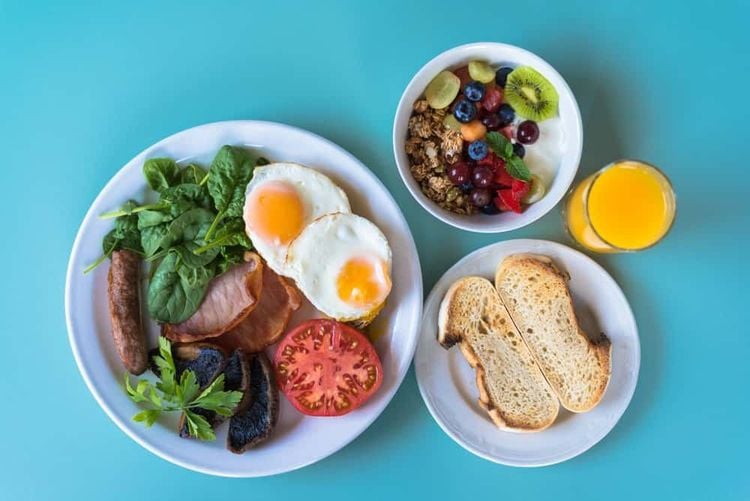
Giảm lượng đường khi ăn sáng bằng thực phẩm lành mạnh
Added sugars in the diet, especially fructose, increase cravings. The signals that normally tell the brain that the body is full is not working properly, which can lead to overeating and weight gain. On the other hand, protein has been shown to reduce appetite and feelings of hunger. If you feel full, then you're less likely to get the quick cravings that sugar provides. Protein has also been shown to directly reduce cravings. One study found that a 25% increase in dietary protein reduced cravings by 60%. Fats are rich in energy. It contains 9 calories per gram, compared with 4 calories per gram in protein or carbs. Eating a lot of fat also reduces cravings. According to the fat content of the food, the fat receptors in the mouth and intestines change the way the food is digested. This reduces cravings and subsequently calorie intake.
To curb sugar cravings, stock up on whole foods rich in protein and fat, such as meat, fish, eggs, full-fat dairy products, avocados, and nuts.
2.11. Consider a natural sweetener For some people, sugar can be just as addictive as drugs or alcohol. In fact, studies have shown that it can affect the brain in a similar way to certain drugs. Addiction to sugar creates cravings and a level of “tolerance,” meaning that more and more sugar must be consumed to satisfy those cravings
Studies have found that rats show signs of anxiety and depression. depression after discontinuing a high-sugar diet. This shows that giving up sugar can be very difficult for some people. If you're struggling, there are some natural sweet alternatives that are really good for you.
Stevia: Extracted from the leaves of a plant called Stevia rebaudiana, the composition of this leaf is virtually calorie-free and has been shown to help lower blood pressure and blood sugar levels in people with Erythritol: Found naturally in fruit, it contains only 6% sugar calories, but is much sweeter, so only a little is needed. It also doesn't cause blood sugar spikes Xylitol: A sweetener found naturally in many fruits and vegetables. It does not cause blood sugar spikes After cutting down on your sugar intake, you will adapt to enjoying less sweet foods. 2.12. Limit sugar storage in the home If we keep foods with high sugar content in the house, we are more likely to eat them. Although cravings for snacks and sweet foods can occur at any time of the day or night, they can be worse in the evening. Evidence shows that circadian rhythms or internal body clocks increase hunger and cravings for sweet and starchy foods in the evening.
Studies have shown that distractions can be very effective in reducing cravings. If that doesn't work, then try to keep some healthy, low-sugar snacks around the house to eat instead.

Hạn chế lưu trữ các loại đồ ăn có đường để giảm lượng đường
In a study done recently, 68 participants fasted for 5 hours. Half of the participants were then allowed to eat as many wheat crackers as they wanted right before going shopping, while the other half went shopping on an empty stomach.
They found that the hungry group bought more high-calorie products than the control group. In another study, a subject group of 82 grocery shoppers were observed to see if the time of day they went shopping had any effect on their purchases. Research shows that people who shop between 4 and 7 pm during dinner time, when they are hungry, make them buy more high-calorie products than those who shop between 1 and 4 pm. , right after lunch.
2.14. Get enough sleep Good sleep habits are extremely important to everyone's health. Poor sleep has been linked to depression, poor concentration, and reduced immune function. A link between sleep deprivation and obesity has also been shown by scientists. But recently, researchers have found that sleep deprivation also affects the foods we eat.
One study looked at this phenomenon in 23 healthy adults. Their brains were scanned using functional magnetic resonance imaging (fMRI), first after a full night of sleep and then a sleepless night. The researchers found that the function of the frontal lobe, the part of the brain that controls decision-making, was impaired after a night of sleep deprivation. Furthermore, the area of the brain that responds to reward and that controls motivation and desire is stimulated. These changes meant that participants preferred high-calorie, sweet and salty foods when they were sleep deprived.
Another study found that people who went to bed late and did not get enough sleep consumed more calories, junk food and soft drinks and less fruit and vegetables than those who went to bed earlier and got enough sleep . So, going to bed early and getting a good night's sleep can help you reduce your sugar intake.
Excess sugar in the diet can be extremely harmful and has been linked to many chronic diseases, including cancer, type 2 diabetes, heart disease and obesity. It's important to avoid obvious sources of sugar in your diet, such as desserts and soft drinks, but also to be aware of hidden sugars in some commonly processed foods, including water. sauces, low-fat foods and so-called "healthy" snacks. Choose a diet based on whole foods, rather than highly processed alternatives, to completely control your sugar intake and not make you overconsume them.
Please dial HOTLINE for more information or register for an appointment HERE. Download MyVinmec app to make appointments faster and to manage your bookings easily.
References: mayoclinic.org, healthline.com, heart.org




